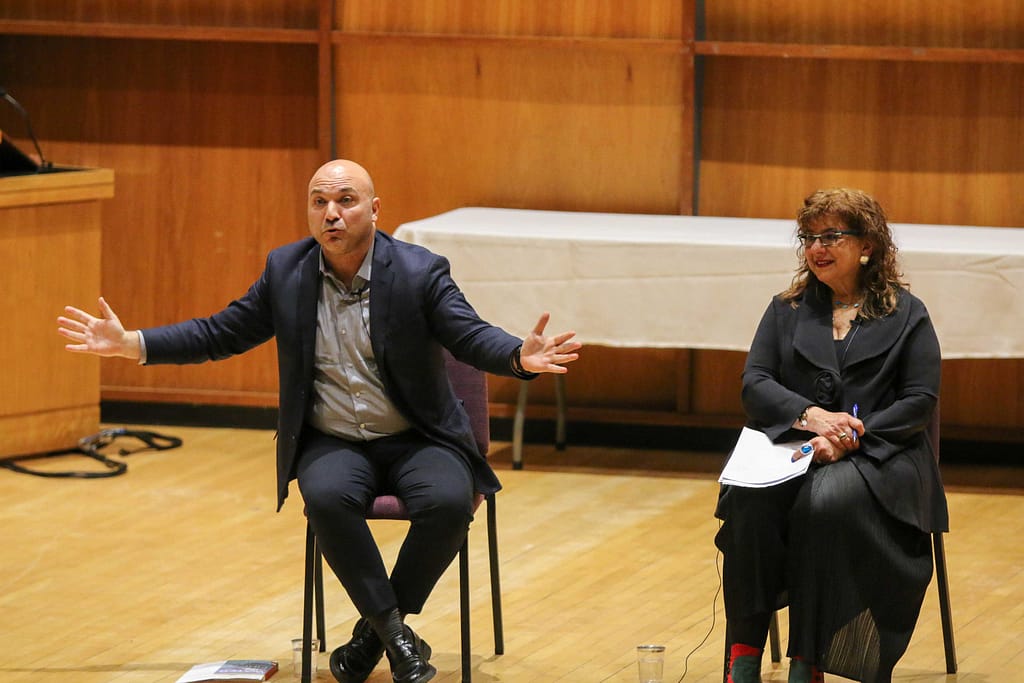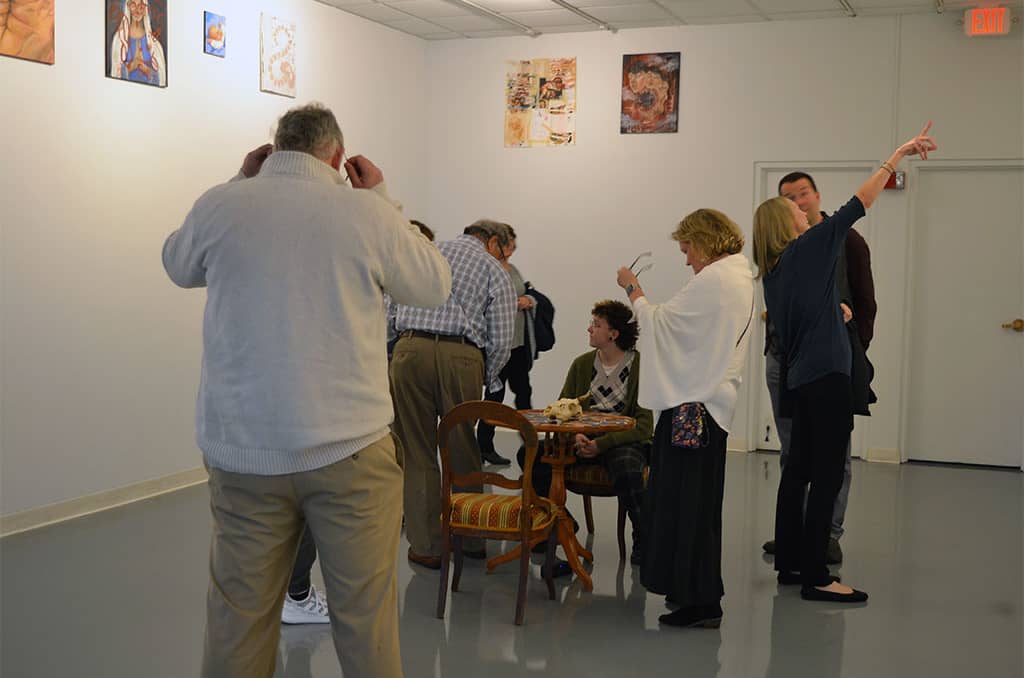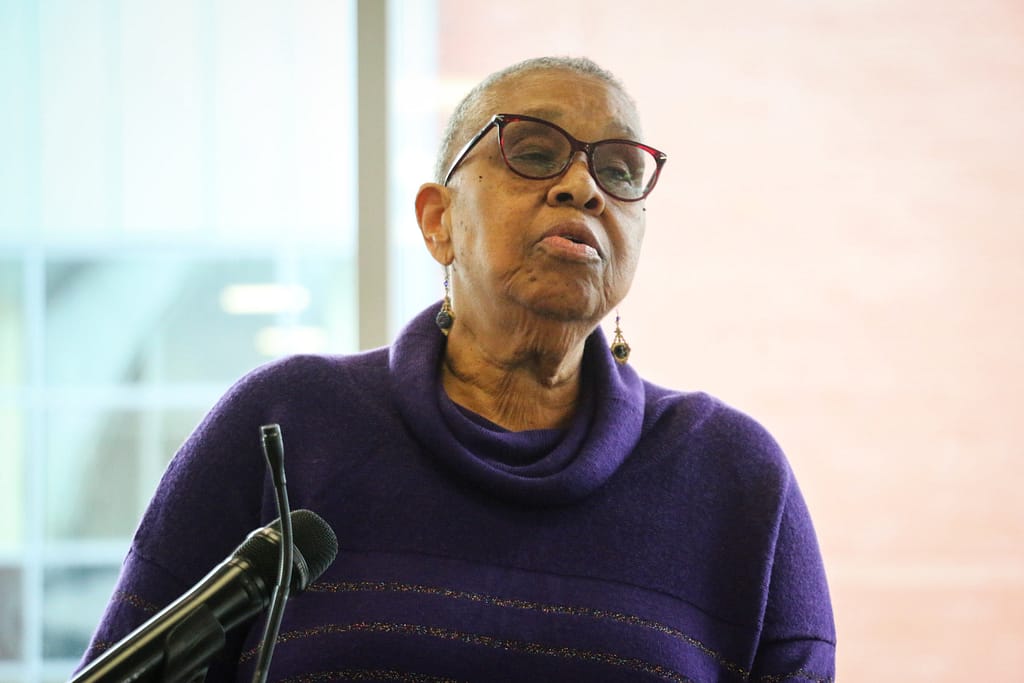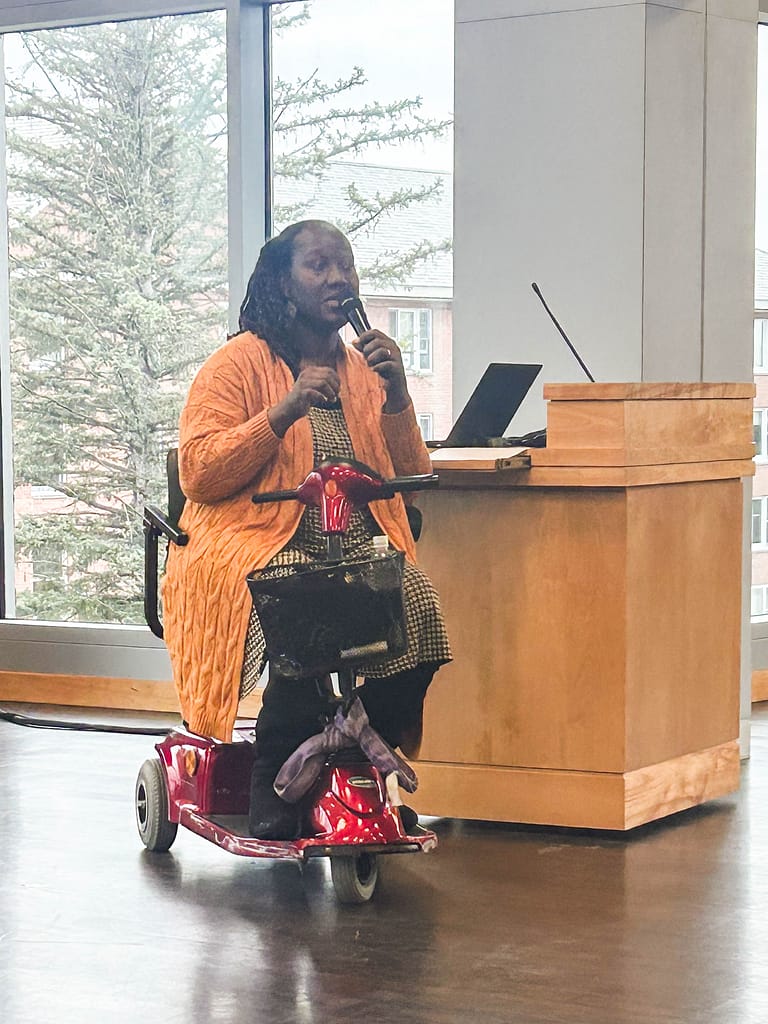St. Mike’s graduate psychology student wins prize for essay
Erica Young M’23 promotes greater use of psychoanalytic insights in "restorative classrooms," garnering national professional group’s $1,000 prize and journal publication
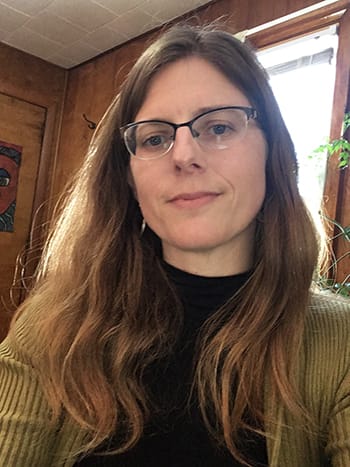
Erica Young M’23
The American Psychological Association (APA) recently awarded Erica Young M’23, a Saint Michael’s graduate clinical psychology student from Lyme, NH, the Schillinger Prize, including $1,000 and publication of her essay on restorative classrooms in the Division Review, an annual forum produced by the APA.
Young’s essay, “The Restorative Classroom: A Psychoanalytic Playground in a Public School,” explores new approaches to education in public schools that Young believes are more supportive for young children. “My life’s work is supporting kids with social and emotional needs,” she said.
Young said she primarily is pleased that this recognition might nationally advance work that she sees as vital in promoting the concept of restorative classrooms, which emphasize tapping insights from psychoanalysis and paying attention to student emotions in the education process more than might be traditional. “In this publication, they are representing the work that we do, and that feels important,” Young said.
Jacob Rusczek, graduate professor of clinical psychology at Saint Michael’s, said when he read Young’s essay submitted for his class, he felt it was worthy of greater recognition, and told her so. “[Young] did a very good job of taking the vision that people in the psychoanalytic movement had in the ‘20s and ‘30s, then holding it up to what she sees now and playing those two things off of each other,” he said. “She used that as a way to talk about what she sees as problematic in schools and what could be better.”
Rusczek said that many essay prompts in his class are loose, allowing students to write about what interests them if they prefer. The psychoanalytic movement, which the class recently had studied, interested Young, so she decided to use it as a jumping off point in her essay on modern best practices. The psychoanalytic movement refers to when Sigmund Freud opened up free clinics to provide the public with more access to mental health treatment.
In her essay, Young stresses the importance of a psychoanalytical approach to teaching, meaning that educators would focus more on the mental wellbeing and emotions of students. “I’ve been doing this kind of work for about five or six years, and what I want to do is disseminate these ideas. How can we introduce schools to a psychodynamic and psychoanalytic approach to supporting kids as opposed to a behavioral approach?” said Young.
Young emphasized that this work is relevant and important to modern elementary schools. “Violence and aggression in schools, currently, is through the roof. I’m talking about elementary schools, little kids. The kids I work with are really suffering,” she said. Young believes that an approach focusing on children’s psychology and emotions is what will end this suffering. In her view, this approach is more effective than a behavioral approach, which relies on external stimuli and behavior to understand children’s actions. Young said she practices a psychoanalytical approach in her own “restorative classroom.” The term refers to practices that deepen connection, understanding, and empathy, working on emotional or behavioral issues that affect the classroom and school community. Young and her peers quickly witnessed the emotional progress students made through these gentle, restorative approaches that focused on processing emotion. She supports integrating this modern approach into classrooms across the country.
“I did write this paper — this is my thinking — but it’s not about me at all. It’s about the team, the ideas, the model, and how we can get it out there. I want the whole country to know about this,” said Young. While such a goal of national buy-in to her preferred approach is ambitious, Young believes that educators everywhere at least acknowledge a need for change in some way.
“I think, by and large, teachers know that students need something different, but they’re not trained in it,” she said. This is where Young said she feels hopeful that her essay might spark some discussion around needed changes in the modern classroom.
Young said she set out to get her master’s degree in psychology in order to be better equipped in implementing these changes and redesigning education as we know it. “I see myself consulting schools, designing and developing programs. Teachers need training to work with kids who are really struggling,” said Young. Her master’s degree in psychology is something that Young believes is giving her the expertise on topics like modern, restorative classrooms that she can take and spread to educators across the country.
Young said that her Saint Michael’s education supports her work and beliefs about what a modern classroom should look like. “I am really grateful to Saint Mike’s. The clinical psychology program is what we call psychodynamic, which is unusual. A lot of master’s programs in psychology are very behaviorist focused,” said Young.

Professor Jacob Rusczek of graduate psychology
Rusczek agrees that the program is well-run and distinguished. “The Saint Michael’s clinical psychology program is a very humanistic and psycho-dynamically oriented program,” he said. That psychodynamic nature of the program greatly coincides with the model that Young urges primary education classrooms to undertake.
Young particularly mentions Ron Miller, the former director of the psychology program, who set the program up with its psychodynamic focus. Young said that she is grateful to Miller for giving students the opportunity to experience how modern education should look and feel.
She also expressed gratitude to Rusczek and his class. While the professor did not directly suggest she submit the essay for the Schillinger Prize, his words of encouragement gave her the confidence to do so, she said.. Beyond Miller and Rusczek, Young praised the entire department for offering her the education she needs in the way she needs it.
Rusczek said he was excited to learn of the award and publication opportunity for Young’s essay, though he was not shocked. “It’s such a great paper, and Erica is saying something so valuable and needed in the world, so I’m not surprised it was appreciated by an awards panel,” he said.
To read Erica Young’s essay in the Division Review, visit https://div39members.wildapricot.org/resources/DR%20Issue%2025.pdf
